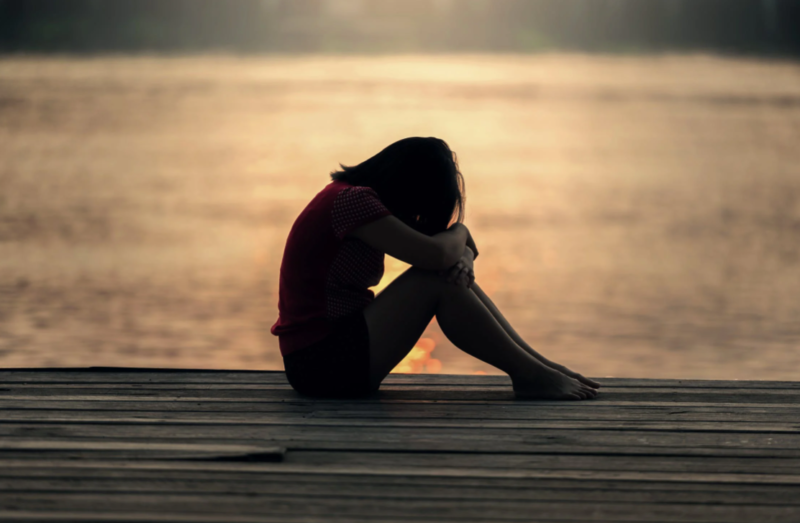
Have you ever heard the acronym HALT?
It stands for Hungry, Lonely, Angry and Tired.
When we are feeling some or all of these symptoms, it’s much easier for us to make bad decisions that we will regret later. This is true of all humans, regardless of mental health diagnosis – everyone can be prone to “snapping” or making impulsive decisions if they are hungry, lonely, angry or tired. However, this acronym is especially useful to people with Substance Use Disorder. When folks with SUD aren’t meeting these basic needs, they are much more likely to make poor, impulsive decisions around substance use. Simply put, exposing yourself to “HALT states” repeatedly or over long periods of time can easily prompt relapse.
Let’s look at each piece of this acronym and what it can teach us about making it easier to maintain sobriety and a healthy recovery.
Hungry: When You’re Tempted Use Drugs or Alcohol Because Your Body Needs a Familiar Fuel

We all know that healthy, balanced meals regularly spaced throughout the day – backed up with snacks in between – is important for maintaining our energy levels, balancing out our blood sugar levels, and generally promoting a more peaceful state of mind. When you’re hungry, your body’s ability to produce serotonin – one of the most important “feel good” chemicals in our brains – is compromised. We feel irritable, we struggle to concentrate and we get sluggish or cranky.
In times like these, it’s easy to confuse hunger for food with a craving for drugs or alcohol. In active addiction and early recovery, it’s especially common to confuse your body’s hunger cues with drug and alcohol cravings, as they work using similar pathways in the brain.
Angry: The Emotion That is Literally “Blinding”

Anger is a strong emotion. It also represents an activation of our fight or flight response. This response is designed to help keep us alive in emergencies. And anger response means our limbic system – the oldest part of our brains – senses an existential threat to our wellbeing.
That guy in front of you cut you off in traffic? The wooly mammoth coming at you with tusks bared? Your limbic system can’t tell the difference but it’s up for the challenge either way.
When your fight or flight response is activated, the rest of your body – including “non-essential” parts of your reasoning system – shuts down temporarily so that you can conserve energy and concentrate on staying alive. Digestion and field of vision are just two of the temporary casualties. Tunnel vision and “blind rage” are not just fanciful turns of phrase. They reflect real realities that people experience during an activation of the fight or flight response. Your ability to think through long term consequences, your ability to access higher reasoning, your ability to feel into moral or spiritual realities – these faculties all take a back seat.
Often anger is masking other emotions, too. Anger can be the tough exterior of fear, sadness or anxiety.
Obviously, when you’re temporarily cut off from important parts of your brain, you’re likely to make bad long-term decisions. For people with SUD, these decisions can easily include poor choices around drugs and alcohol.
Lonely: Addiction Recovery is a Team Sport

Loneliness is a documented killer. Studies have shown that people who report chronic loneliness have poorer health outcomes than others and even experience shorter lifespans in general.
The isolation of addiction is a self-perpetuating cycle. As drugs or alcohol become your primary concern, important relationships take second place. As your behavior becomes less predictable and more self-centered, you damage your relationships even further. As those who care about your express concern, you push them away in order to continue to prioritize your addiction.
Breaking this cycle is an important part of a healthy recovery plan. Maintaining strong, healthy connections with people who care about you provides positive outlets for the intense feelings many people with SUD experience.
When you’re lonely, it’s easy to fall into negative self-talk and hide relapse warning signs and symptoms.
Tired: Sleep is the Foundation of a Healthy Recovery

Just like hunger, our bodies’ tiredness cues serve as huge flashing arrows pointing to our basic needs.
Healthy sleep patterns are the foundation of a strong recovery program. Do not compromise your sleep for anything. Shoot for between 7 and 9 hours of a sleep a night. Observe a regular “bed time” and keep phones, work and other distractions out of the bedroom.
When you’re tired, your defenses are down. It’s easier to feel sad, scared, despondent and hopeless. Every small issue can feel like a catastrophe. Your immune system takes a hit. In short, your mind and your body cannot operate properly without enough sleep.
For people with SUD, sleep hygiene is especially important. Addiction frequently wreaks havoc with our sleep. Depending on your substance of choice, you may sleep too much or not enough. Alcohol in particular may appear to be a sleep aid, but the quality of sleep under the influence of alcohol is actually greatly diminished. Alcohol makes restorative REM sleep impossible, which even impairs your ability to dream.
With HALT, the Common Denominator is a Felt Sense of Desperation
“Staying healthy” is an overused and overly general phrase. Of course it’s important to “stay healthy” or “make healthy choices” during recovery. That much is obvious. What makes HALT so useful is its specificity. HALT helps us focus in on the key factors that have the power to make us feel absolutely desperate and out of control. When we feel desperate, it can be extremely tempting for people with SUD to “fix” the feeling with drugs and alcohol. Avoid the “HALT states” and you’ll eliminate a fair number of relapse triggers from your life without even thinking about it.
Good News! Addiction Treatment Works. Portland Has Some Great Options, Too
If you’re ready to get help, the good news is that the medical community has made tremendous strides in the evidence-based treatment of this disease.
At Shanti Recovery and Wellness, we pair Medication-Assisted Treatment (or MAT) with convenient medical supervision, one-on-one counseling and nutritional support. Our treatment plans are completely personalized to the individual. We have helped many people chart a simple path to regain control of their health and their lives.
If you’re ready to start your journey to recovery, reach out today to get started.

